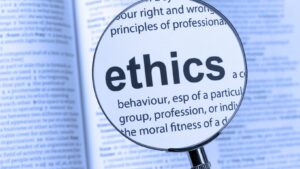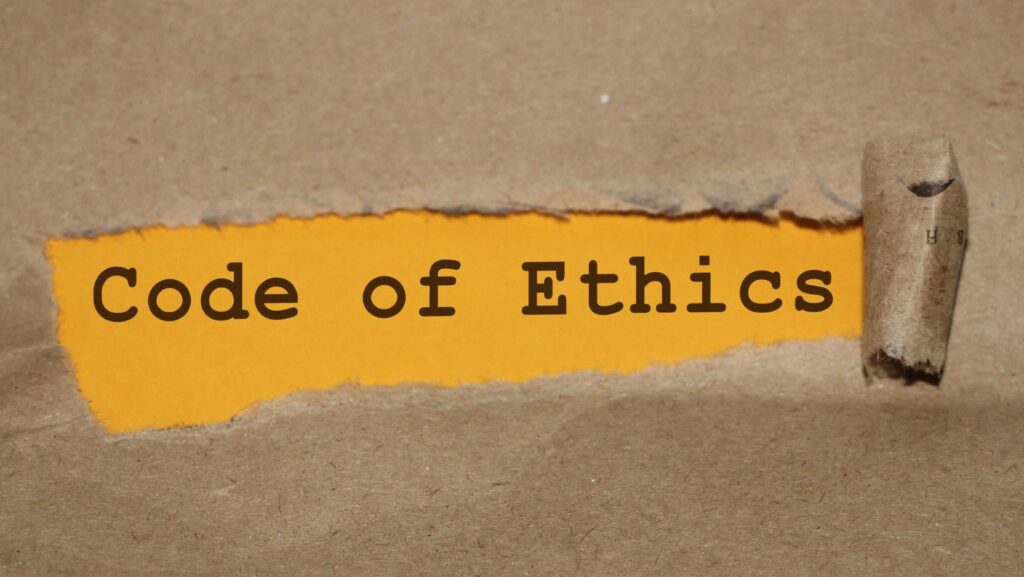Media Law and Ethics Read Online
- Understanding Media Law and Ethics: Essential for content creators and consumers to navigate issues like copyright, defamation, and privacy, thereby ensuring integrity in journalism.
- Online Resources: Valuable sites, such as the American Bar Association and the Society of Professional Journalists, offer crucial insights into legal frameworks and ethical considerations for media professionals.
- Importance of Accurate Reporting: Journalists must prioritize accuracy, fairness, and integrity, balancing legal obligations with ethical standards to maintain public trust.
- Challenges in the Digital Age: Modern dilemmas, including misinformation and copyright infringement, necessitate a strategic approach to uphold both legal compliance and ethical integrity.
- Educational Opportunities: Online courses and webinars provide structured learning avenues to stay updated on evolving media law and ethical standards, enhancing responsible reporting practices.
In today’s digital age, understanding media law and ethics is more crucial than ever. As information flows freely across platforms, the responsibility of content creators and consumers grows. Navigating the complex landscape of copyright, defamation, and privacy laws can be daunting, yet it’s essential for maintaining integrity and accountability in journalism and media.
Online resources provide invaluable insights into these legal frameworks and ethical considerations. They empower individuals to make informed decisions while fostering a culture of respect and accuracy in reporting. By exploring media law and ethics online, readers can enhance their knowledge and contribute to a more responsible media environment.
Overview of Media Law and Ethics
Media law encompasses regulations governing information dissemination in various formats. Key areas include copyright, which protects original works; defamation, which addresses false statements harming reputations; and privacy, which safeguards individuals’ personal information. Understanding these laws is crucial for media professionals to maintain compliance and avoid legal repercussions.
Media ethics, on the other hand, involves the moral principles guiding the journalism and communications field. Ethical considerations include journalistic integrity, accuracy, fairness, and accountability. Professionals must navigate situations where legal and ethical standards may conflict, ensuring that their decisions uphold the public interest.
Several online resources provide accessible information about media law and ethics, helping individuals familiarize themselves with these critical concepts. Websites such as the American Bar Association and the Society of Professional Journalists offer guidelines and case studies that illustrate the application of media law and ethics. These educational materials serve as valuable tools for journalists, students, and anyone involved in media to promote responsible reporting practices.
Staying informed about evolving legal standards and ethical expectations enhances credibility and fosters trust with audiences. Understanding media law and ethics empowers practitioners to make informed decisions that reflect good practices, thereby contributing to a responsible media environment.
Importance of Media Law and Ethics in Today’s Society
Media law and ethics play a crucial role in maintaining the integrity and credibility of information dissemination in today’s society. Understanding these principles helps navigate the complex landscape of digital communication.
Legal Framework Governing Media
Media law includes regulations that govern the creation and distribution of content. Key components include copyright law, which protects the rights of creators, ensuring they receive recognition and compensation for their work. Copyright issues frequently arise in contexts involving online sharing, necessitating knowledge of fair use policies.
Defamation law addresses false statements that can damage a person’s reputation. Media professionals must understand the standards of proof for defamation cases, which vary depending on whether the subject is a private individual or a public figure.
Privacy laws protect individuals from unauthorized access to their personal information, particularly critical in the age of social media. Professionals must know the boundaries of consent and rights to privacy to prevent legal complications.
Ethical Considerations in Journalism
Media ethics encompass the moral principles that guide journalistic practices. Core values include accuracy, fairness, integrity, and accountability. Journalists face dilemmas where legal obligations may conflict with ethical standards, demanding critical thinking and moral judgment.
Accurate reporting involves verifying facts and sources before publication, ensuring that information shared is truthful. Fairness requires representing all sides of a story, giving communities a balanced view that fosters informed decision-making.
Integrity in journalism involves maintaining transparency with audiences about sources and possible biases. Accountability holds media professionals responsible for their actions and the information they distribute, reinforcing public trust.
Ethical guidelines, such as those provided by the Society of Professional Journalists, serve as resources for navigating challenging situations. By adhering to these standards, media professionals strengthen the foundation for responsible journalism.
Resources for Media Law and Ethics Read Online
Several valuable online resources exist for understanding media law and ethics, supporting journalists and media professionals in navigating complex issues.
Academic Journals and Articles
Access to academic journals offers in-depth analyses and recent studies regarding media law and ethics. Notable journals include:
- Journal of Media Law & Ethics: This publication focuses on legal and ethical challenges in media, providing insights from experts in the field.
- Communications Law: This journal covers legal developments affecting the media landscape, offering articles that examine case studies and regulatory changes.
- The International Journal of Press/Politics: This journal explores the relationship between media and society, discussing ethical implications and legal frameworks.
These resources equip readers with comprehensive knowledge, promoting informed decision-making in media practices.
Online Courses and Webinars
Online courses and webinars enhance understanding of media law and ethics through structured learning experiences. Relevant options include:
- American Bar Association (ABA) Webinars: The ABA regularly hosts webinars addressing current legal issues in media, featuring expert discussions and case studies.
- Society of Professional Journalists (SPJ): SPJ offers online courses covering ethical journalism practices, with modules that delve into legal scenarios and ethical dilemmas.
- Coursera: Platforms like Coursera provide courses from reputable universities focused on media law, ethics, and their practical applications.
These educational opportunities help professionals stay updated on evolving standards within the media landscape, ensuring responsible reporting practices.
Challenges in Media Law and Ethics
Navigating the landscape of media law and ethics presents numerous challenges, particularly in the context of digital communication.
Digital Age Dilemmas
Digital platforms create unique dilemmas in media law and ethics. Issues such as misinformation, data privacy, and copyright infringement surface frequently. Misinformation spreads rapidly, often outpacing fact-checking efforts. Data privacy concerns arise as personal information becomes vulnerable, leading to ethical questions about consent and confidentiality. Copyright infringement becomes increasingly common, as users share content without proper attribution or permission. Media professionals must develop strategies to mitigate these challenges, ensuring compliance with legal standards while maintaining ethical integrity.
Case Studies and Legal Precedents
 Case studies and legal precedents highlight the implications of media law and ethics in practice. Notable cases, such as New York Times Co. v. Sullivan, underscore the necessity of proving malice in defamation cases involving public figures. Another example, the Google v. Oracle case, illustrates complexities in copyright issues related to software. These legal precedents establish guidelines that influence contemporary media practices, serving as reference points for journalists and media organizations. By analyzing these cases, professionals can better understand how laws evolve and the ethical obligations that stem from them, reinforcing their commitment to responsible journalism.
Case studies and legal precedents highlight the implications of media law and ethics in practice. Notable cases, such as New York Times Co. v. Sullivan, underscore the necessity of proving malice in defamation cases involving public figures. Another example, the Google v. Oracle case, illustrates complexities in copyright issues related to software. These legal precedents establish guidelines that influence contemporary media practices, serving as reference points for journalists and media organizations. By analyzing these cases, professionals can better understand how laws evolve and the ethical obligations that stem from them, reinforcing their commitment to responsible journalism.
Accountability in Journalism
Understanding media law and ethics is essential for navigating today’s complex digital landscape. As information spreads rapidly online, professionals must stay informed about legal standards and ethical practices. This knowledge not only helps avoid legal pitfalls but also fosters trust with audiences.
Utilizing available online resources can significantly enhance one’s grasp of these critical concepts. By engaging with academic journals, online courses, and professional organizations, individuals can develop the skills necessary for responsible media practices. Ultimately, a strong foundation in media law and ethics empowers practitioners to make informed decisions that uphold integrity and accountability in journalism.

